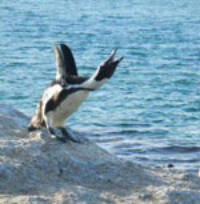Courses
All classes are held in the law faculty building at UWC. The administrative offices for this program are also located in the same building.
Comparative Criminal Justice (2 credits)
Professor Rodney Uphoff (University of Missouri School of Law) / Professor Carmel Jacobs
This course will explore a number of critical issues that confront the criminal justice system of both South Africa and the United States. Specially, we will look at prison overcrowding, plea bargaining, the death penalty, the delivery of indigent defense services and sentencing policies. Not surprising, the legal system of each country faces common problems as each country struggles to provide fair and efficient procedures for coping with ever-increasing numbers of criminal cases. The course will examine the extent to which various factors including the structure of each system, history, culture, institutional developments and legal norms influence the systems handling of these issues.
Readings, lectures, videos and field trips in the Cape Town area will provide students from both countries a keen appreciation for the interplay between theory and practice in both systems. The Faculty will draw upon their experiences in their respective systems to highlight the similarities and differences in the administration of justice in each country. Students will gain a better understanding of the strengths and weaknesses of each system and of the difficulty of achieving meaningful reform in either country.
Bioethics (2 credits)
Dean Paul Litton (University of Missouri School of Law) / Professor Karin van Marle
This course provides students with an introduction to legal topics in bioethics and law. It further provides students with a platform to reflect upon and resolve ethical, social, and legal issues that arise in biomedicine and biomedical research, while examining the four principles of autonomy, justice, beneficence and non-maleficence that often arise in bioethics issues.
The course will additionally explore recent cases at the intersection of this field and illustrate how South African and United States law deal with bioethics-related issues in real life. Topics to be covered include aspects of reproductive law such as assisted reproductive technologies, wrongful life claims, socially controversial bioethics topics such as organ donation (and sales) and physician-assisted suicide, as well as genetic engineering. This course explores the legal bases for decision-making in these areas of health law and considers how far rights extend and what other recourse is available to individuals (if any).
Comparative Constitutional Law (2 credits)
Professor Wessel Le Roux(University of the Western Cape)
This course will introduce students to the South African Constitution and to the jurisprudence of the South African Constitutional Court and will then compare Bill of Rights cases from the South African Constitutional Court and the United States Supreme Court. The aim of this course is, first, to enable students to develop a better understanding of the fundamental assumptions underlying the Bill of Rights jurisprudence of the USA and South Africa and, second, to enable a conversation among students about how the specific cultural, historical, political and structural context affects the consideration and ultimately the resolution of difficult Bill of Rights cases.
The South African Constitutional Court has also handed down several groundbreaking judgments on controversial legal issues such as the legally admissible scope of affirmative action, the need for the recognition of same-sex relationships, the admissible scope of hate speech regulation, the admissibility of criminally sanctioned religious practices, the limits of the right to family life and the limitation on the imposition of the death penalty. These cases will be compared and contrasted with cases from the United States Supreme Court dealing with similar issues. Students will be invited to analyze and contrast these judgments and will be required to reflect on the differences between these judgments with specific reference to the differences in the social, economic, political and cultural reality that exists in the United States and in South Africa.
Schedule
UWC/MU Comparative Law Institute – University of the Western Cape, South Africa
June 11 – July 13, 2024 (Classes will be held at the UWC Faculty of Law)
View Full Schedule
Tuition and Fees
Learn more about the tuition and fees and additional program information.
Grading
 Transcripts: Non-MU students will need to request official transcripts online from the University of Missouri Registrar. Students will be expected to attend all class sessions and complete the required reading assignments. At the conclusion of each course, students must complete an exam. Grading will be done on a numbered scale with 100 being the highest possible grade. If you are a non-MU student, you will receive a number grade from the University of Missouri based on a 1-100 scale. You will need to check with your home school as to whether your number grade will be converted to a pass/fail grade or a letter grade at your school.
Transcripts: Non-MU students will need to request official transcripts online from the University of Missouri Registrar. Students will be expected to attend all class sessions and complete the required reading assignments. At the conclusion of each course, students must complete an exam. Grading will be done on a numbered scale with 100 being the highest possible grade. If you are a non-MU student, you will receive a number grade from the University of Missouri based on a 1-100 scale. You will need to check with your home school as to whether your number grade will be converted to a pass/fail grade or a letter grade at your school.